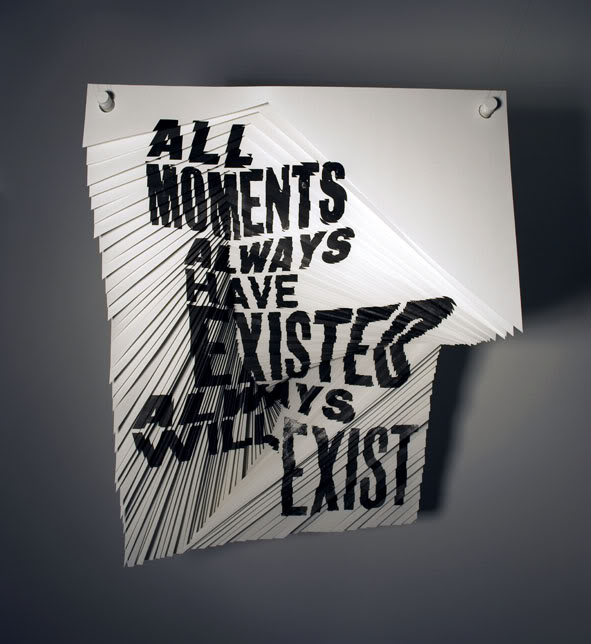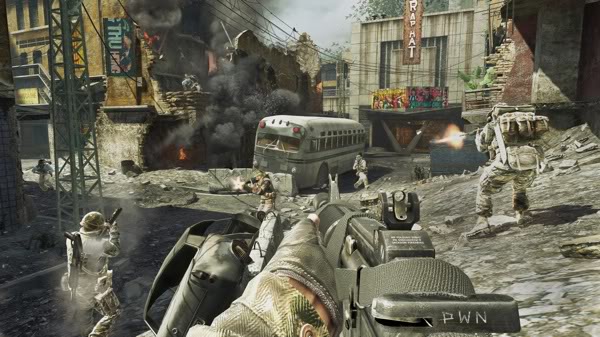This post has not been edited by the GamesBeat staff. Opinions by GamesBeat community writers do not necessarily reflect those of the staff.

Summarizing games with one word has become an obsession. Is it even feasible for most games? Perhaps it isn't, but that doesn't make it any less fun to try. A few favorites: Super Mario Bros.? Classic. Metal Gear Solid? Mesmerizing. Oddworld Abe's Oddysee? Brilliant. So, what would that make Call of Duty: Black Ops?
Completing the single-player campaign may offer a good perspective on what one word would best describe the entirety of the game. (Maybe you have a word in mind. Please share in the comments!) But I think that before we can reach a conclusion about which word fits best, we need to discuss a few things.
Namely, is Call of Duty: Black Ops antiwar or pro-war?
It depends on your perspective: According to Bitmob staff member Omar Yusuf, Black Ops is pro-war. He recently wrote an excellent article on the subject. I partially disagree.
Having recently read two famous antiwar novels — Slaughterhouse-Five by Kurt Vonnegut and Catch-22 by Joseph Heller — my own perspective is a bit different than Yusuf's. In both of those books, the main characters find themselves in grisly World War II conditions that affect their lives in dramatic ways. Strangely, each book deals with these circumstances by injecting a fair amount of humor into the narrative. But that isn't the only thing these two novels have in common: Both main characters are legitimately insane.
 Slaughterhouse-Five's main character, Billy Pilgrim, is a prisoner of war that witnesses the horror of the Dresden bombings firsthand. Throughout the book Pilgrim believes that aliens have abducted him, and that time itself just is — like an object. It has no present or future; what has happened will always happen, and things that have died still exist when they were alive.
Slaughterhouse-Five's main character, Billy Pilgrim, is a prisoner of war that witnesses the horror of the Dresden bombings firsthand. Throughout the book Pilgrim believes that aliens have abducted him, and that time itself just is — like an object. It has no present or future; what has happened will always happen, and things that have died still exist when they were alive.
He holds this perspective because throughout the story he travels from the end of his life to the beginning to somewhere in the middle during World War II in the blink of an eye. It's a fascinating portrayal of one man's insanity. However fictitious and unbelievable it may seem, the point is obvious: The war broke Pilgrim's mind.
Catch-22, on the other hand, centers around a main character named Yossarian, a pilot, and his attempts to question why he should sacrifice his own life for something he doesn't believe in. Like Slaughterhouse-Five's Billy Pilgrim, Catch-22's Yossarian is crazy. He becomes increasingly more so the longer the war goes on. His friends die slowly but surely, and each day he wonders why the grim reaper hasn't come for him yet. Toward the end of the book, Heller describes the demise of Yossarian's friends in stomach-turning detail.
Both books are genuinely funny, but both authors understood the importance of portraying the ugliness of war in order to get across their antiwar message more effectively. This is probably why my own views on Black Ops are different than Yusuf's: I believe Black Ops is very antiwar.
Why?
The brutality of the conflict portrayed during the course of Black Ops brings to mind the violence seen in Slaughterhouse-Five and Catch-22. In order to show how horrific war is, a clear picture needs to be painted for the reader — or in the case of Black Ops, the player. This helps them understand the gravity of the situation.

But does does portraying war in such a gruesome yet visually stimulating manner have the opposite effect on the player? Again, I point to perspective. Yusuf was sensitive to parts of Black Ops that I didn't notice before he pointed them out. Does that mean either one of us is wrong? Nope. We just have different perspectives.
To me, the main character in Black Ops, Alex Mason, isn't really that different from Billy Pilgrim or Yossarian. Each character experiences war in a different way, but the outcome is still the same: All three of them are absolutely bonkers.
The insanity of fighting is a pretty strong antiwar message in its own right. I say pretty strong because in reality, the sight of humans killing humans should be absolutely appalling to everyone. It should be the antiwar message.
Listen:
Black Ops is a video game. Treyarch developed it to make money. It panders to basic feelings and emotions because its purpose is entertainment. To say that I didn't have a great time playing through single-player campaign would be a lie. I did have fun. I had a blast. In fact, I plan on playing through it again. But understand this: I don't think war is a game, and I don't think we should take the deaths of thousands of soldiers lightly.
Am I a hypocrite for playing and enjoying Black Ops? I don't know. Help me figure it out.
Let's recap: Black Ops is a vicious game about remorseless killers participating in conflicts to demonstrate the inhumanity of war. I believe its antiwar message lies in the portrayal of its main character: He's clearly cracked. It's beautiful and entertaining, featuring senseless violence and addictive gun play. It's exhilarating and captivating and frustrating and….

So many words could describe Black Ops, but it needs to be boiled down to one:
Brutal.
Note: I didn't intend this article to be a rebuttal of the things Omar Yusuf wrote in his article titled Black Ops and the Military Entertainment Complex (or the things discussed in the comments that followed). I fully respect Omar's opinions and even share most of them. His fantastic article merely spurred my thoughts.
